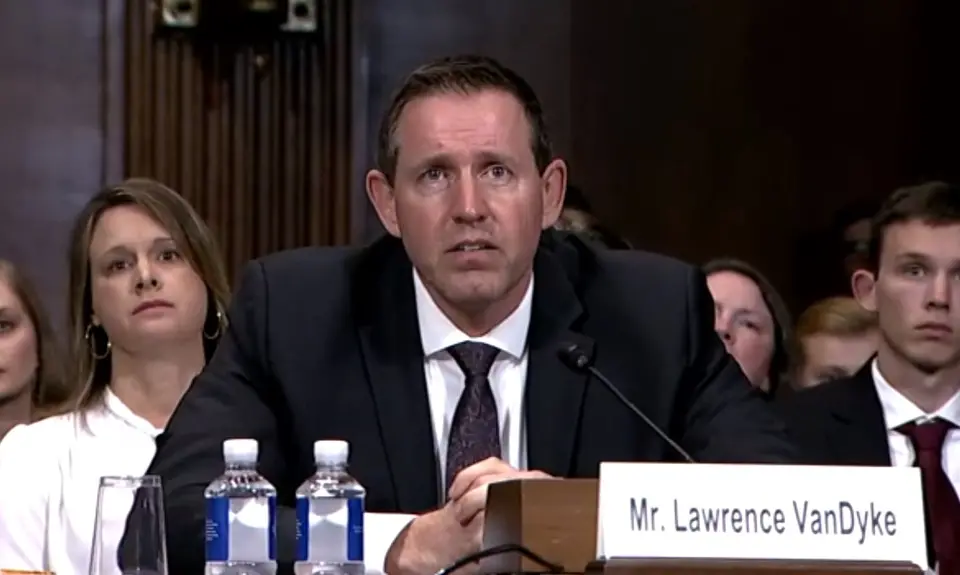“Confirmed Judges, Confirmed Fears” is a blog series documenting the harmful impact of President Trump’s judges on Americans’ rights and liberties. Cases in the series can be found by issue and by judge at this link.
Trump Ninth Circuit judge Lawrence VanDyke cast the deciding vote to affirm the dismissal of a civil rights case against police brought by a man who was falsely convicted of a crime he did not commit and was improperly imprisoned for more than 16 years. The May 2021 decision was in Vargas v City of Los Angeles.
Luis Vargas was convicted in 1999 of sexually assaulting three women and served more than 16 years in prison, before he was freed based on DNA evidence that conclusively showed that the crime was not committed by him, but by a person known as the Teardrop Rapist who committed at least 39 such assaults. After he was freed, Vargas filed a civil rights suit against the city of Los Angeles and several police officers, contending that, among other misconduct, the police used “misleading and suggestive” identification procedures that “caused the victims to falsely identify Vargas as the perpetrator.” For example, with respect to one witness, it “was not until she viewed Vargas three separate times” that she “became positive” that he had committed the crime.
A district court dismissed Vargas’ identification claim before he could even conduct any discovery, based on the fact that the state courts years ago had rejected Vargas’ motion to suppress the identification evidence. Trump judge VanDyke cast the deciding vote in a 2-1 decision to affirm that ruling, claiming that the state’s requirements for “collateral estoppel,” which generally prevents relitigation of an issue that has already been resolved, “are met here.”
Judge Richard Paez strongly dissented and would have reversed the lower court. Under California Supreme Court precedent, he explained, a court “must balance the need to limit litigation against the right of a fair adversary proceeding in which a party may fully present his case” with respect to collateral estoppel. In this case, he went on, by dismissing the case before Vargas could even conduct discovery, the majority “denied [him] the opportunity to gain new information on the circumstances surrounding his wrongful identification.” Paez pointed out that the courts “do not preserve judicial integrity,” a key purpose of collateral estoppel, “by preventing litigation that seeks to identify the causes and circumstances of a serious miscarriage of justice, like the one Vargas suffered.” Any alleged “burden on the defendants in relitigating this claim,” Paez continued, “pales in comparison to the grave injustice experienced by Vargas.”
As a result of VanDyke’s deciding vote, however, Luis Vargas will have no opportunity to seek accountability with respect to the police officers who contributed to his wrongful imprisonment for more than 16 years. The case is yet another example of Trump judges casting deciding votes to excuse police misconduct and make it harder for victims of such misconduct to get justice. There are now several seats on the Ninth Circuit for President Biden to fill, and it is crucial to our battle for our courts for the Senate to confirm Biden nominees for those seats as promptly as possible.
